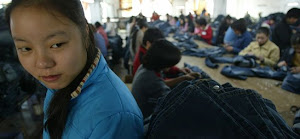Upon first viewing this film is primarily about Elizabeths wedding. It is very easy to get lost in the preparation, and what may be very different traditions that these migrant workers have. What we do learn through the interviews is the way in which this family and many like it have dealt with the hardships of the migrant lifestyle. We learn of the unfortunate trend of children of migrant workers quitting school to work with their parents. Through Elizabeths mother we learn of the cultures use of a communal lifestyle to keep afloat. During the off-seasons the family lives off the money made during the migration and what ever jobs they can (but often don't) get in a town with hundreds in the exact same boat. In this group a sense of cultural essentialism is promoted and very important to the lively hood of the families. One aspect that really stood out was Elizabeth's joy in finding a man from Nuevo Leon (her families home in Mexico) she felt that it was 'right.' During one scene Elizabeth also talks about her experiences in High School in California, it is evident that she never felt at home. So despite the fact that she is a U.S citizen Elizabeth does not seem to feel a conection to this country. Elizabeth is not overly emotional in the film however her sadness about the way migrant workers are treated and must live is evident. As I mentioned in my personal reflection journal entry this film is by far the hardest for me to review, it just hits to close to home.







No comments:
Post a Comment